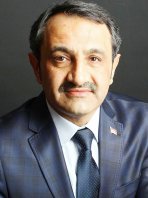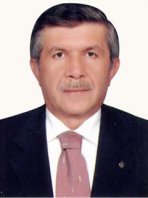Benî Kaynuka ve Benî Nadîr kabilelerinin bizzat imzaladıkları Medine Vesikası'nda bulunan güvenliğe dair maddeleri açıkça ihmal etmeleri sebebiyle Medine'den sürgün edilmesinden sonra Müslümanlar ile yapılan anlaşmaya bozmayan tek Yahudi kabilesi olan Benî Kurayza Medine'de kalmıştı.
Fakat onlarında Müslümanlar ile yaptıkları Medine Vesikası'na sadık kalmaları uzun sürmemişti.
Benî Kurayza, Medine Vesikasında belirtilen maddeye aykırı olarak Hz. Peygamber'e ve Müslümanlara olan düşmanlıklarını Hendek Savaşı'nda açığa vurmuş, Müslümanlar ile olan anlaşmayı bozarak müşrikler ile ittifak kurmuşlardı.
Medine'den sürgün edilip Hayber'e yerleşen Benî Nadîr Yahudileri Müslümanlar aleyhine faaliyetlerde bulunmaya başlamışlardır. Mekke'ye bir heyet göndererek Müslümanlara karşı ittifak kurarak onları Medine'ye saldırmaya teşvik etmişlerdir.
Benî Nadîr liderlerinden Huyey b. Ahtab çabaları sonucu Mekkeli müşrikler, Gatafân, Fezâre, Esed ve Süleym gibi farklı kabilelerden destek alarak büyük bir ordu kurmayı başararak 627 yılında Medine önlerine gelerek Müslümanları kuşatmışlardır.
Medine önlerine gelen Müşrik ordusu Medine'nin hendek ile savunmaya alındığını görünce zor durumda kalmışlardır. Hendek Medine'yi savunmada Müslümanlara ciddi bir avantaj sağlarken, Müşrikleri sıkıntıya düşürmüştür. Hendeği geçme teşebbüslerinin başarısız olması ve kuşatmanın uzaması Müşrikleri lojistik olarak da sıkıntıya düşürmüştür.
Onların bu durumunu gören Huyey b. Ahtab, Benî Kurayza Yahudilerine gelerek müşriklere yardım etmeleri ve Müslümanlar ile olan anlaşmalarını bozmaları hususunda anlaşmaya çalışmıştır. Kurayza Yahudileri ilk etapta Huyey'in bu teklifini kabul etmemelerine rağmen onun baskılarına daha fazla dayanamayarak Müslümanlar ile yaptıkları anlaşmayı bozarak Müşrikler ile ittifak yapmayı kabul etmişlerdir.
Bu ittifak Müslümanları zor durumda bırakmış ve Hz. Peygamber, onlardan gelebilecek bir saldırıyla iki ateş arasında kalmamak için Medine içinde de bir askerî birlik görevlendirmişti.
Hendek Savaşı'nın devam ettiği bir safhada Gatafan kabilesinin ileri gelenlerinden olan Nu‘aym b. Mes'ûd'un Müslüman olması ile savaşın seyrini değiştiren bir durum ortaya çıkmıştır. Nu‘aym b. Mes'ûd, Hz. Peygamber'den gelen talimat ile Müslüman olduğunu açıklamayıp, Kurayza Yahudileri ile müttefikleri Kureyş'in arasını açmak için faaliyet yürüterek başarılı olmuştur. Nu‘aym'ın faaliyetleri sonucu iki müttefik topluluğun arası açılmış ve Mekkeli Müşrikler kuşatmayı kaldırarak Medine önlerinden çekilmek zorunda kalmışlardır.
Hz. Peygamber, Hendek Savaşı'nda müşriklerin hezimete uğratılmasından sonra öğle vaktine yakın bir zamanda Medine'ye dönerek, Hz. Âişe'nin yanına gelmiş, silahlarını çıkarmış ve başını yıkayarak istirahate çekilmiştir.
Kaynaklarımız Hz. Peygamber bu hal üzere iken Cebrâil'in gelerek: "Ey Allah'ın Rasûlü! Allah sana derhal Benî Kurayza üzerine yürümeni emrediyor.” şeklinde Allah Teâlâ'nın emrini tebliğ ettiğini belirtmektedir.( İbn İshâk, Sîre, s. 408; İbn Sa‘d, Tabakât, II, 70)
Hz. Peygamber'in de bu emir üzerine zırhını giyinip silahlarını kuşandığını da belirten kaynaklarımız, Abdullah İbn Ümmü Mektûm'un Hz. Peygamber tarafından Medine'de vekil bırakıldığını, Bilâl-i Habeşî'ye "İşiten ve itaat eden kimse ikindi namazını Benî Kurayza yurdundan başka yerde kılmasın” emrini ashaba duyurulması görevinin verildiğini ifade etmektedirler.( İbn İshâk, Sîre, s. 409; Vâkıdî, Meğâzî, II, 4; İbn Sa‘d, Tabakât, II, 70)
Duyurunun ardından da Hz. Ali'yi çağırıp sancağını ona vererek öncü birliklerin başında, Benî Kurayza yurdunu kuşatması için önden göndermiştir. Hz. Ali Hz. Peygamber'in emri üzerine süratle Benî Kurayza'yı kuşatmak üzere harekete geçmiş, Kurayza Yahudilerinin kalelerinin dibine kadar ilerleyerek sancağı buraya dikmiştir.
Günlerce süren kuşatmadan sonra Yahudiler teslim olmuşlar, Hz. Peygamber'in teklifiyle kendileri Sad bin Muaz'ı hakem tayin etmişler ve onun verdiği hüküm uygulanmıştır.
Benî Kurayza gazvesinde sözleşmeye dayalı hukukun kişisel ibadet olan namazdan daha ehemmiyetli olduğu dersi veriliyor.
Gazze'de yaşanan İsrail vahşeti karşısında Müslümanlar özellikle farz ve vacip olmayan bütün mali ibadetleri gözden geçirmeli ve Allah'ın rızık olarak verdiği imkânları yine O'nun rızası çerçevesinde kullanırken ehem/mühime çok dikkat etmeliler.
Günümüz Müslümanları olarak hepimizin hayatlarında Kur'an ve Sünnet'le belirlenen ehem/mühim konusunda derin bir tefekküre ihtiyacımız olduğunu düşünüyorum.
Afternoon Prayer and Banu Qurayza Jews
After the Banu Qaynuqa and Banu Nadir tribes were exiled from Medina due to their apparent neglect of the security provisions in the Medina Document, which they personally signed, the Banu Qurayza, the only Jewish tribe that did not violate the agreement made with the Muslims, remained in Medina.
However, it did not take long for them to remain faithful to the Medina Agreement they made with the Muslims.
Banu Qurayza, contrary to the article stated in the Medina Document, Hz. They revealed their hostility towards the Prophet and the Muslims in the Battle of the Trench, and they broke the agreement with the Muslims and formed an alliance with the polytheists.
Banu Nadir Jews, who were exiled from Medina and settled in Khaybar, began to engage in activities against Muslims. They sent a delegation to Mecca and formed an alliance against the Muslims and encouraged them to attack Medina.
Huyey b., one of the leaders of Beni Nadir. As a result of Ahtab's efforts, the Meccan polytheists managed to establish a large army by receiving support from different tribes such as Gatafân, Fezâre, Asad and Sulaym, and came to Medina in 627 and besieged the Muslims.
The polytheist army came to Medina and was in a difficult situation when they saw that Medina was defended with a ditch. While the trench provided a serious advantage to the Muslims in defending Medina, it caused trouble for the polytheists. The failure of the attempts to cross the trench and the prolongation of the siege also put the polytheists in logistical difficulties.
Seeing their situation, Huyey b. Ahtab came to the Banu Qurayza Jews and tried to reach an agreement that they would help the polytheists and break their agreements with the Muslims. Although the Qurayza Jews did not accept Huyey's offer at first, they could not stand his pressure any longer and agreed to break the agreement they made with the Muslims and make an alliance with the Polytheists.
This alliance left Muslims in a difficult situation and Hz. The Prophet also assigned a military unit in Medina to avoid being caught between two fires due to an attack from them.
At a stage when the Battle of the Trench was continuing, Nu'aym b., one of the leaders of the Gatafan tribe. When Mes'ud became a Muslim, a situation arose that changed the course of the war. Nu'aym b. Mes'ud, Hz. He was successful by not declaring that he was a Muslim upon the instruction of the Prophet, but by carrying out activities to create a rift between the Qurayza Jews and their allies the Quraysh. As a result of Nu'aym's activities, a rift broke out between the two allied groups, and the Meccan Polytheists had to lift the siege and retreat from the front of Medina.
Hz. After the polytheists were defeated in the Battle of the Trench, the Prophet returned to Medina around noon and met Hz. He came to Aisha, took off his weapons, washed his head and went to rest.
Our sources are Hz. While the Prophet was in this state, Gabriel came and said: "O Messenger of Allah! Allah commands you to immediately march against Banu Qurayza.” He states that he conveyed the command of Allah Almighty in the form of. (Ibn Ishaq, Sira, p. 408; Ibn Sa'd, Tabaqat, II, 70)
Hz. Our sources, which also state that the Prophet put on his armor and weapons upon this order, indicate that Abdullah Ibn Ummu Maktum was with Hz. They state that he was left as a deputy in Medina by the Prophet, and that Bilal-i Habeshi was given the task of announcing to his companions the order "No one who hears and obeys should perform the afternoon prayer anywhere other than the land of Bani Qurayza." (Ibn Ishaq, Sîra, p. 409; Vâkıdî, Mağazî , II, 4; Ibn Sa'd, Tabaqat, II, 70)
After the announcement, Hz. He called Ali and gave him his standard and sent him ahead at the head of the vanguard to besiege the land of Banu Qurayza. Hz. Hazrat Ali. Upon the order of the Prophet, he quickly took action to besiege Banu Qurayza, advanced to the base of the castles of the Qurayza Jews and raised the standard there.
After a siege that lasted for days, the Jews surrendered and Hz. Upon the proposal of the Prophet, they appointed Sad bin Muaz as the arbitrator and his decision was implemented.
In the Battle of Banu Qurayza, the lesson is given that contractual law is more important than prayer, which is a personal act of worship.
In the face of the Israeli brutality in Gaza, Muslims should especially review all financial acts of worship that are not obligatory or obligatory, and they should be very careful when using the opportunities God has given as sustenance, within the framework of His consent.
I think that, as today's Muslims, we all need a deep reflection on the important issues determined by the Quran and Sunnah in our lives.


















